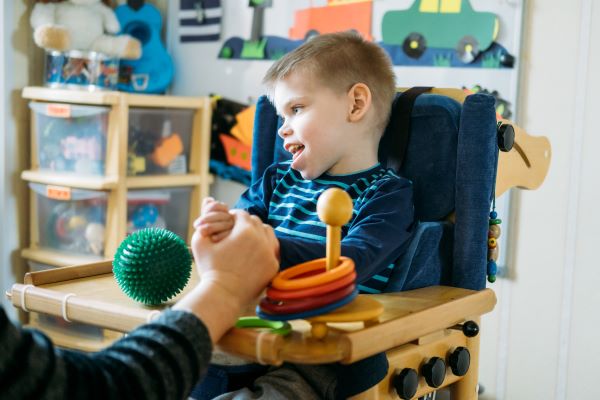When you have a child with special needs, estate planning requires special consideration. You'll need…

Promoting Healthy Aging Through Family Connections
The presence of family establishes a steadfast social network and connection that significantly influences a senior’s overall quality of life. Prioritizing family relationships provides continuity as older adults experience changes in their social network. Friends may change, become ill and unavailable, or even pass away. Family is multi-generational and endures. That stability, even with the ups and downs of disputes, is a familiar source of social and emotional grounding, as well as practical help. A loving family brings a positive outlook and tremendous benefits to an aging parent’s health and wellbeing.
Sadly, not all seniors have the benefit of a close family. Aging seniors with a strong connection to family tend to live healthier and longer lives than those who remain isolated. Family contact can reduce disease symptoms and may prevent faster mental decline even when living with later stages of dementia.
How Does Family Contribute to Longevity?
Family contact helps to maintain a senior’s immune system. Family social connections create optimism, which may lead to stronger cell-mediated immunity against bacterial or viral invasions. An older adult’s immune system can also become more adaptive due to low-level exposure to a variety of pathogens when interacting with their family in person. Social seniors, even those in non-family settings, often have healthier immune systems because of human contact.
Other techniques to improve an aging immune system include:
- Nutritional supplements or vitamins
- A healthy, nutrient-rich diet
- Regular exercise
- Maintaining vaccinations
- Reducing stress
- Restful sleep
- Proper hydration
- Washing hands
- A positive outlook
When a senior has an actively involved family, it increases beneficial behaviors. Attention from family reduces feelings of depression, which feeds the cycle of optimism, improving overall health.
How Does Family Improve Cognitive Function?
A higher level of cognitive functioning is linked to a family connection, as well. Brain health benefits from being happy and socially engaged in activities that challenge memory and thinking skills. Human interaction goes beyond the more repetitive brain teaser challenges and puzzles because social dynamics are fluid and unpredictable. A senior must engage all of their senses when responding in a family group.
Holiday meals, birthday celebrations, family reunions, and many other typical family activities are good brainwork for an aging family member. According to the Public Library of Science, elderly and middle-aged adults who maintain active social circles are at a lower risk of developing dementia. Family is the ultimate pre-made social connection.
Changing Family Roles
Parents who used to care for their children experience a change in family structure and the inevitability of declining health. When the roles of parenting reverse, it brings challenges for all involved. Financial support is often needed when a parent requires help at home or is transferred to assisted living or nursing home care. Family members who can comfortably contribute to an aging parent’s lifestyle greatly relieve stress. Even if a family can’t provide financial support, emotional support does wonders for their loved one. Positive conversations and interactions can increase their level of contentment and bring family inclusiveness and a sense of belonging to the senior.
Not all aging adults have a family who can play an active role in their life. However, with extra effort, relationships can be forged that will be mutually beneficial, especially in the digital age of social media. While friendships never replace family, close friends are the family that we choose and can create lasting and meaningful connections.
Strengthening Family Connections and Friendships
Modern technology has made it easier than ever to be a part of someone’s life. Text, email, video chat, and social media platforms provide interaction when it’s not possible to physically be with a family member. However, don’t overlook personal visits, phone calls, and handwritten letters or cards. Older methods of communication may not seem relevant to younger generations, but they are particularly meaningful to a senior.
Caring for an aging loved one can be challenging. Our estate planning and elder law firm has years of experience in issues related to in-home care, assisted living, and nursing home
facilities, as well as ways to pay for services. Contact our elder law attorneys for more information about long-term care options and healthy aging.
We hope you enjoyed this article. If you would like to discuss a personal legal matter, we would be happy to talk. Please contact our Heber Springs, Arkansas Office at (501) 365-3934.



